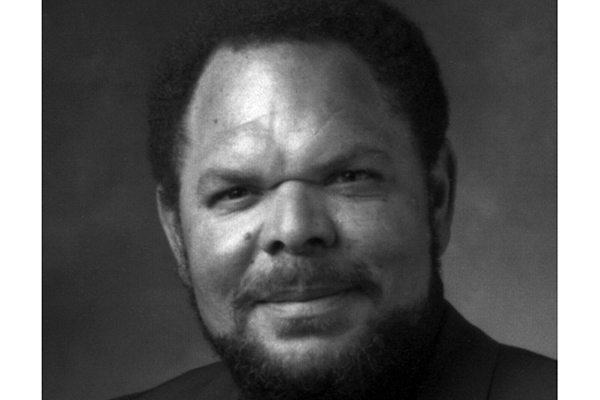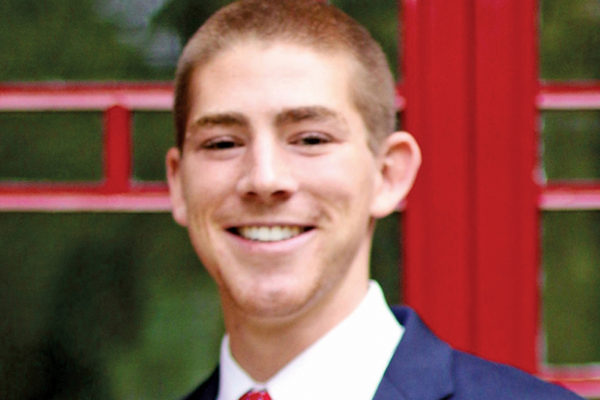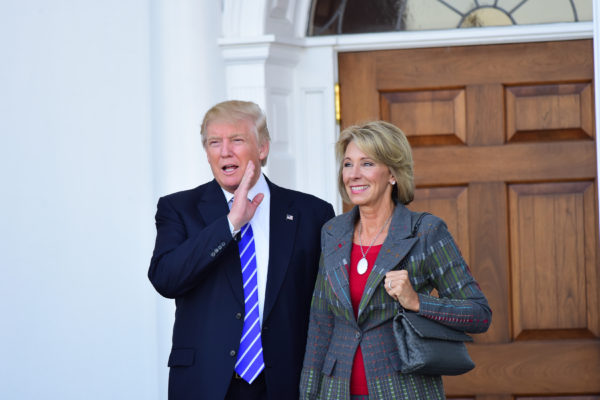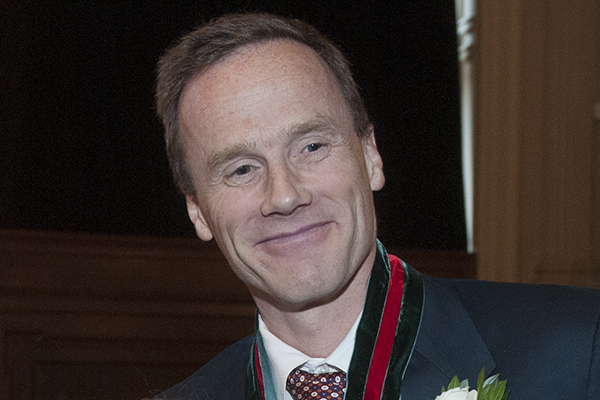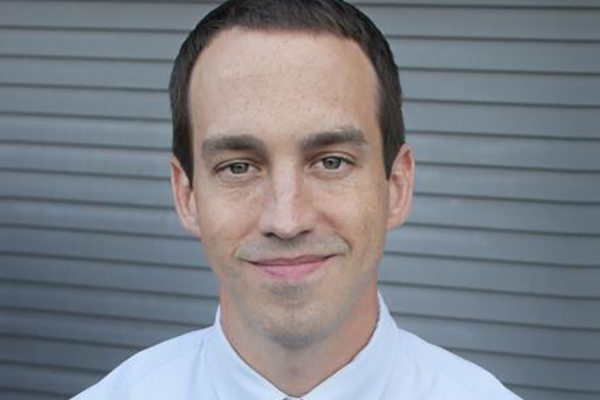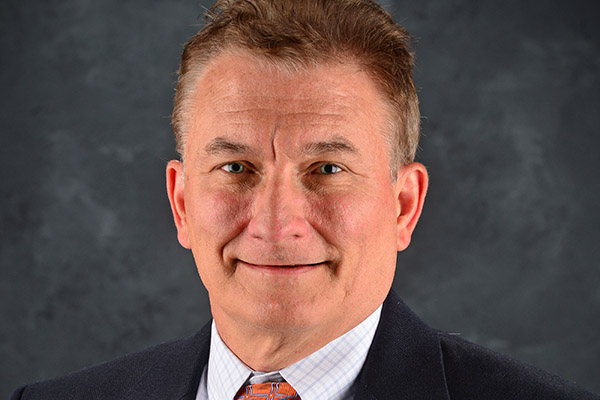Baugh elected to NAS Board on Behavioral, Cognitive, and Sensory Sciences
John Baugh, the Margaret Bush Wilson Professor in Arts & Sciences, has been elected to serve on the Board on Behavioral, Cognitive, and Sensory Sciences for the National Academies of Sciences, Engineering, and Medicine.
WashU grad attends Yenching Academy of Peking University
Ryan Mikkelsen, AB ’16, is the first Washington University graduate to attend the prestigious Yenching Academy at Peking University in China. The academy selects students it believes will be future global leaders and teaches them new ways to think about China.
WashU Expert: Don’t mistake DeVos’ religion for her politics
Betsy DeVos is arguably the most controversial figure ever nominated to lead the U.S. Department of Education. Yet in covering her nomination, many journalists have conflated valid concerns about experience, temperament and political beliefs with questionable assumptions about her religious background, argues Abram Van Engen, associate professor of English.
McCarthy wins G. de B. Robinson Award
John E. McCarthy, chair of mathematics and the Spencer T. Olin Professor in Arts & Sciences at Washington University in St. Louis, received the 2016 G. de B. Robinson Award in December — along with co-author Jim Agler of the University of California, San Diego — for an outstanding paper contributed to the Canadian Journal of Mathematics.
Jonathan Biss launches Great Artists Series Feb. 9
Acclaimed pianist Jonathan Biss will launch Washington University’s new Great Artist Series with a solo recital Feb. 9 in the E. Desmond Lee Concert Hall. The program will feature late works by Frédéric Chopin, Robert Schumann, Johannes Brahms and György Kurtág.
Barnes profiles 2016 Nobel laureates for PNAS
Jonathan Barnes, assistant professor of chemistry in Arts & Sciences, co-wrote profiles of Jean-Pierre Sauvage, Sir J. Fraser Stoddart, and Bernard L. Feringa, the 2016 Nobel laureates in Chemistry, for a series in the Proceedings of the National Academy of Sciences (PNAS) highlighting the discoveries of the award winners.
Center for the Humanities faculty fellows named
Six faculty members in Arts & Sciences have received semester-long fellowships for fall 2017 or spring 2018 from the Center for the Humanities. They are: Jeffrey McCune, Sowande’ Mustakeem and Christopher Stark (fall); Caroline Kita, Long Le-Khac and Anika Walke (spring).
Wiens elected chair of IRIS board
Doug Wiens, the Robert S. Brookings Distinguished Professor of earth and planetary sciences in Arts & Sciences at Washington University in St. Louis, has been elected chair of the board of directors of IRIS (Incorporated Research Institutions for Seismology). The consortium of more than 100 U.S. universities collects and shares seismic and other geophysical data with the goal of better understanding the planet.
Creativity focus of MLA Lecture Series
Creativity will be explored during a series of Saturday talks in February at Washington University in St. Louis. Free and open to the public, the Master of Liberal Arts Lecture Series is sponsored by University College, the university’s professional and continuing education division in Arts & Sciences.
WashU Expert: Advice to Labor
Adia Harvey Wingfield, professor of sociology in Arts & Sciences at Washington University in St. Louis, specializes in research that examines how the intersections of race, gender and class can affect social processes in the workplace. She offers advice to the Trump administration’s Department of Labor: “I urge the Department of Labor to be mindful of […]
View More Stories
